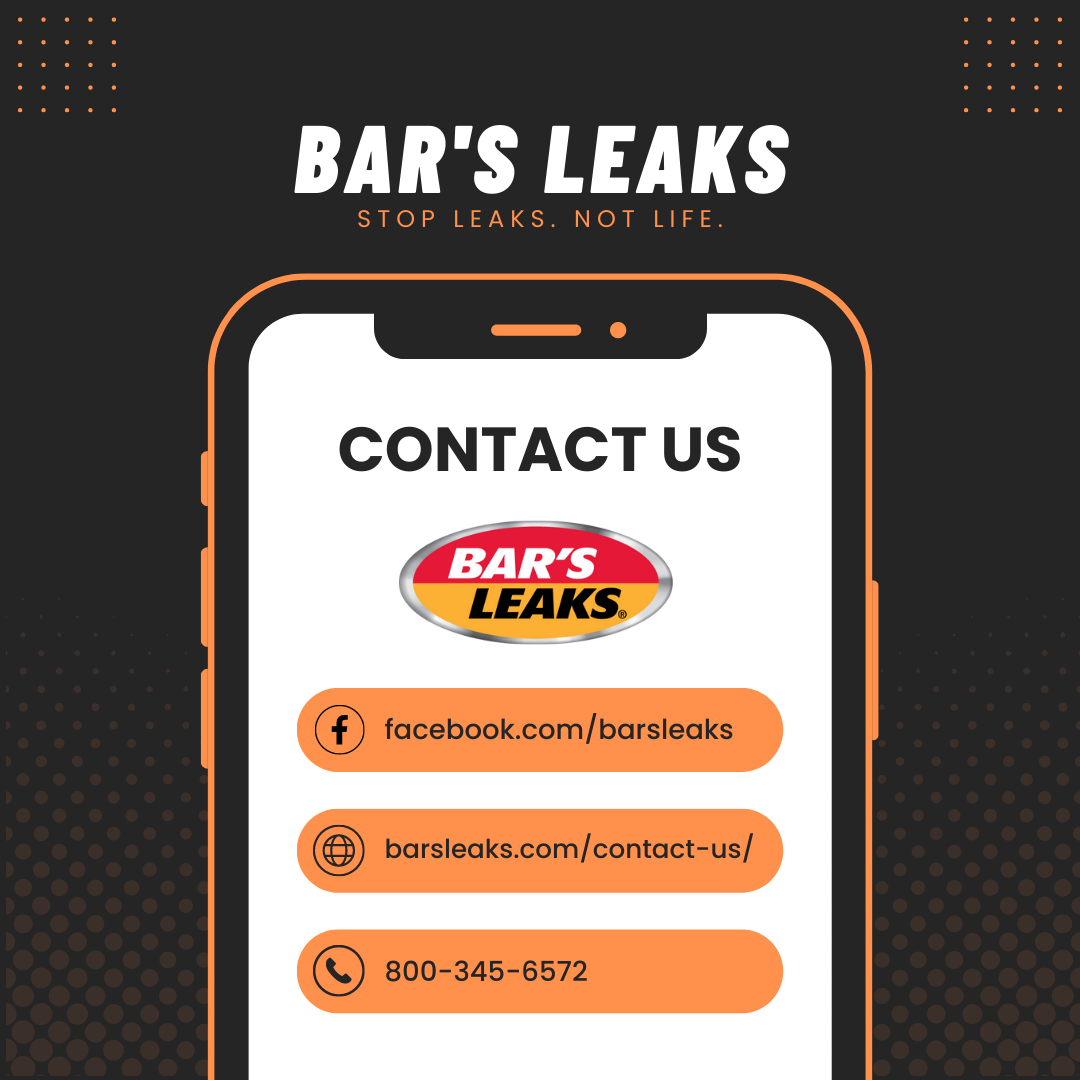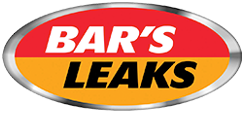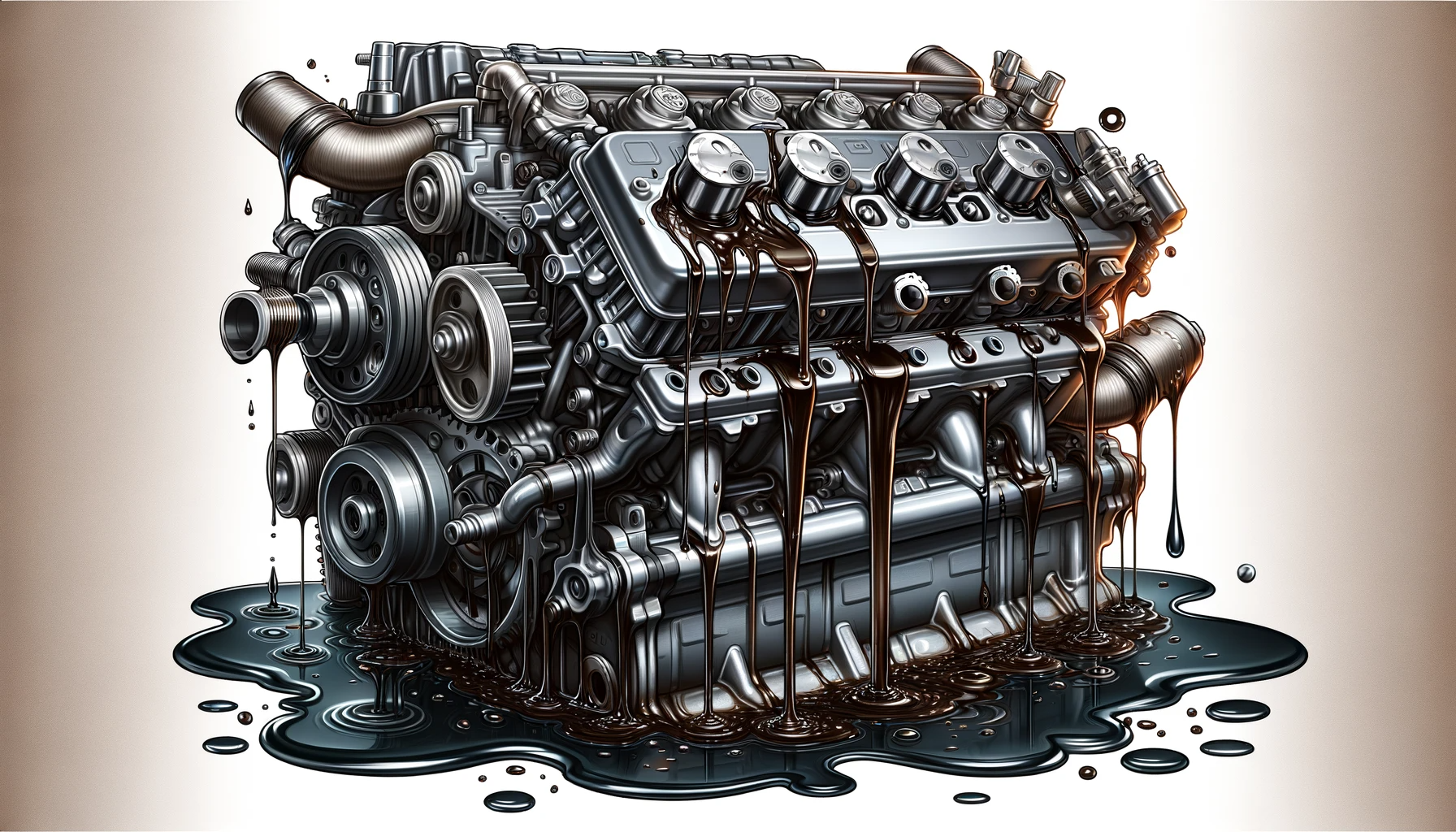
Motor oil leaks. A puddle on the driveway. One of the most common automotive problems for drivers everywhere.
What causes the leaking? Why does it seem to happen more in cold weather? How can you prevent oil leaks from happening the first place? If you do have a leak, what are the best repair options out there without breaking the bank?
I have a motor oil leak now and need a solution that doesn’t involve a dealership or mechanic. Help!
We’ll touch on all the details of oil leaking and cold weather below. For now, if you’ve come here looking for a solution to your engine oil leak and don’t want to read any further, by far our #1 bestselling product to stop mild to moderate oil leaks is Bar’s Leaks Oil Seal Engine Oil Burning & Leak Repair (part #OS-1). This pro-level product:
-
Repairs leaking main seals and gaskets
-
Renews worn valve seals and guides
-
Stops oil burning and blue exhaust smoke
-
Stops ALL other oil leaks, drips and consumption
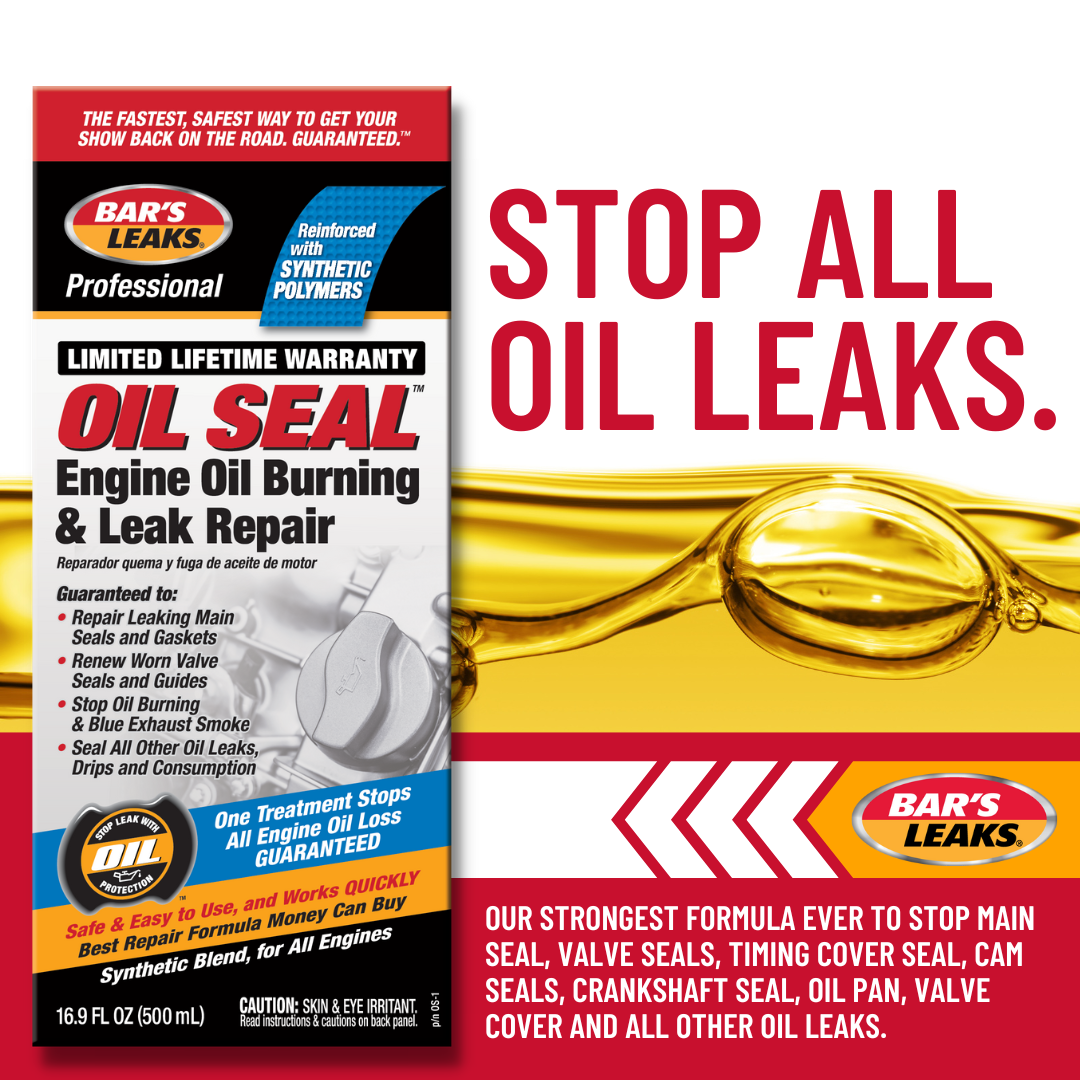
Interested in a little more information about oil leaks? We’ve got your back. Read on.
How does cold weather affect car engines and oil leaks?
Can cold weather cause an oil leak? Well, not exactly, but it can make small leaks worse, or make a tiny, imperceptible leak something you notice – especially when the temps dip into “extremely cold” territory.
But the short answer is “yes” – cold temperatures can make car oil leaks seem worse for a few reasons, which we’ll explain in simple terms:
Oil Viscosity Changes: Think of oil like honey. In cold weather, it gets thicker. Thicker oil doesn’t flow as easily. This means it might not seal or lubricate as effectively as it does when it’s warm. As a result, existing leaks can become more noticeable because the oil isn’t flowing smoothly to cover and protect all parts. This gets worse in extreme cold.
Contractions of Metal and Rubber Parts: Your car engine is made of many materials, including metal and rubber. In cold weather, these materials contract or shrink a little. This contraction can create small gaps or make existing gaps bigger. If there’s already a small leak, these gaps can make it easier for the oil to seep out.
Hardened Seals and Gaskets: The seals and gaskets that keep the oil inside your engine can become hard and brittle in cold weather. When they’re not as flexible, they can’t seal as effectively. This means that if there’s a weak spot or a small tear, the oil is more likely to leak when it’s cold.
More Stress on Engine During Start-Up: Starting your car in cold weather puts more stress on the engine. The oil is thicker, and everything has to work harder to get moving. This extra stress can aggravate existing leaks, making them more noticeable.
Put simply, the cold doesn’t necessarily create new leaks, but it can make existing ones more obvious due to the changes in oil viscosity, material contractions, hardened seals, and additional stress on the engine during start-up.
Car leak frequency by season
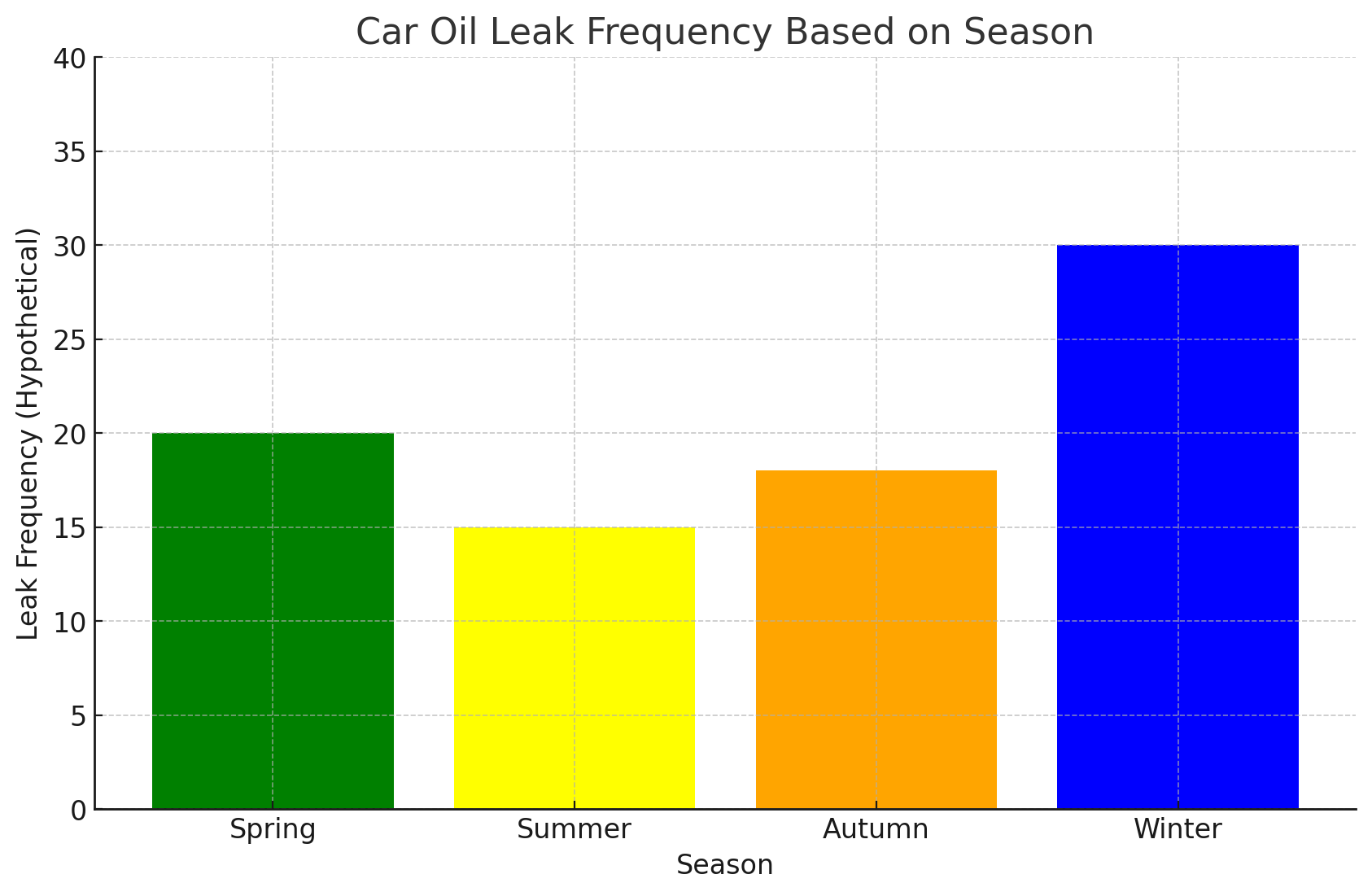
Above is a graph illustrating the hypothetical frequency of car oil leaks based on different seasons in a temperate climate. As shown, the frequency is highest in winter, which aligns with the idea that cold weather can exacerbate existing leaks due to factors like oil viscosity changes and material contractions.
Where do most engine oil leaks come from?
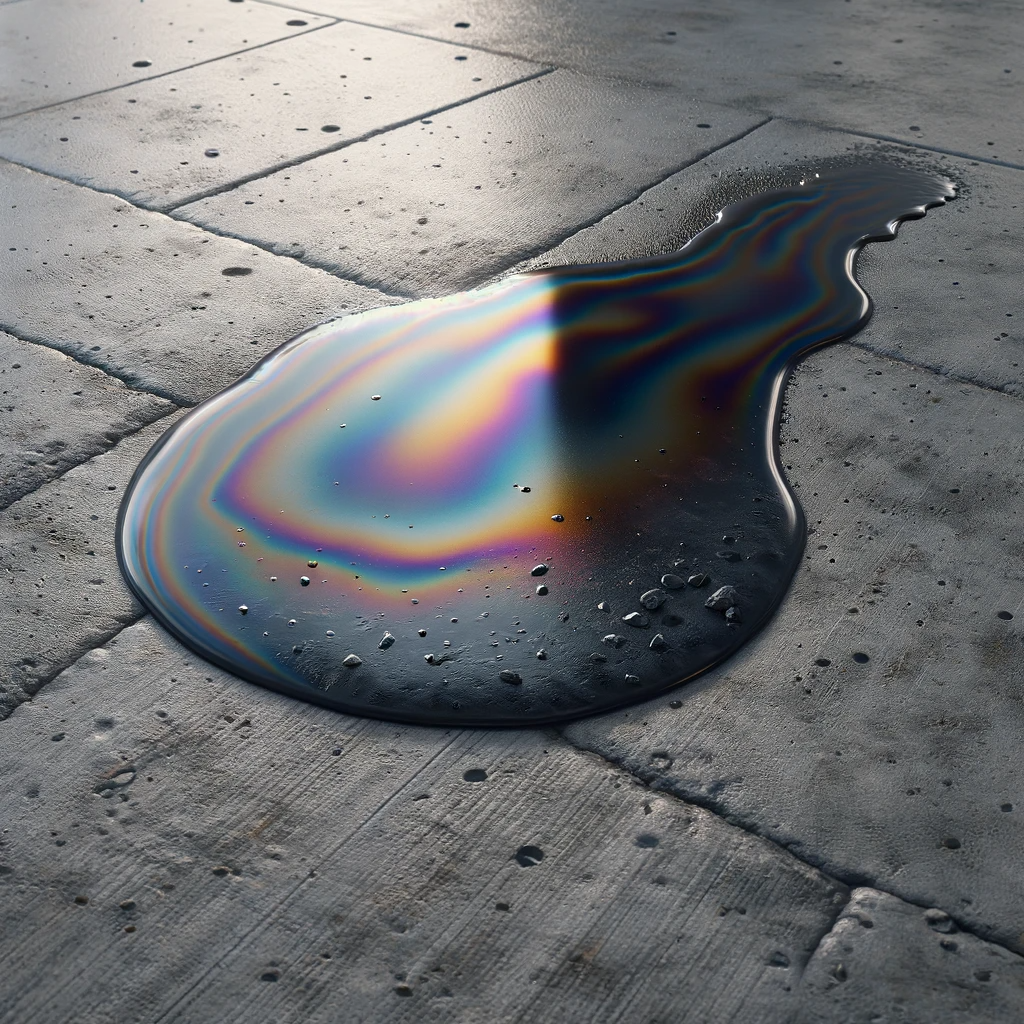
In a standard passenger car, engine oil leaks can come from several common areas:
1. Oil Pan Gasket: This gasket seals the oil pan to the bottom of the engine. It can degrade over time due to heat and age, which eventually leads to leaks.
2. Valve Cover Gasket: Located at the top of the engine, the valve cover gasket seals the valve cover to the top of the cylinder head. (Some V6 and V8 engines have multiple valve covers, and therefore multiple valve cover gaskets.) It’s a common leak source, often due to gasket wear or improper tightening.
3. Oil Filter: The oil filter can become a source of leaks if it’s not properly sealed or if the filter itself is damaged.
4. Oil Drain Plug: Located at the bottom of the oil pan, the drain plug can leak if it’s not tightened sufficiently or if the washer is damaged or missing.
5. Crankshaft Seals: These seals are located at the front and rear of the crankshaft. They can become leak points, especially as the rubber ages and cracks. The area in the back of the engine where the crankshaft connects to the transmission is the rear main seal, which is one of the most common – and problematic – areas from which oil leaks can originate.
6. Camshaft Seals: Similar to crankshaft seals, camshaft seals can deteriorate over time and start to leak.
7. Head Gasket: Although not as common for oil leaks compared to coolant leaks, a failing head gasket can sometimes allow oil to escape.
8. Oil Cooler Lines: In cars equipped with an oil cooler, the lines connecting the cooler to the engine can become sources of leaks.
9. Timing Cover Gasket: This gasket seals the front of the engine and can leak due to wear and tear.
10. Turbocharger: In turbocharged engines, the turbocharger can sometimes be a source of oil leaks, either from the seals within the turbo itself or the oil lines feeding into it.
Each of these areas is susceptible to leaks due to a combination of factors like regular wear and tear, aging of materials, improper installation, and operating conditions. The reason engine oil leaks are so prevalent is because there are so many components in the equation that can fail or contribute to leaks.
I don’t have an engine oil leak right now, but I want to prevent one during the extreme cold months if I can. What do you recommend?
If you have an older car and are not dealing with any kind of engine oil leak, that’s great. But given that cold weather can lead to engine problems and motor oil leaks, a little bit of prevention can go a long way.
We recommend our Bar’s Leaks Engine Repair (part #1000) for those wishing to restore compression and horsepower while also adding some future protection against leaks, noise and smoking.
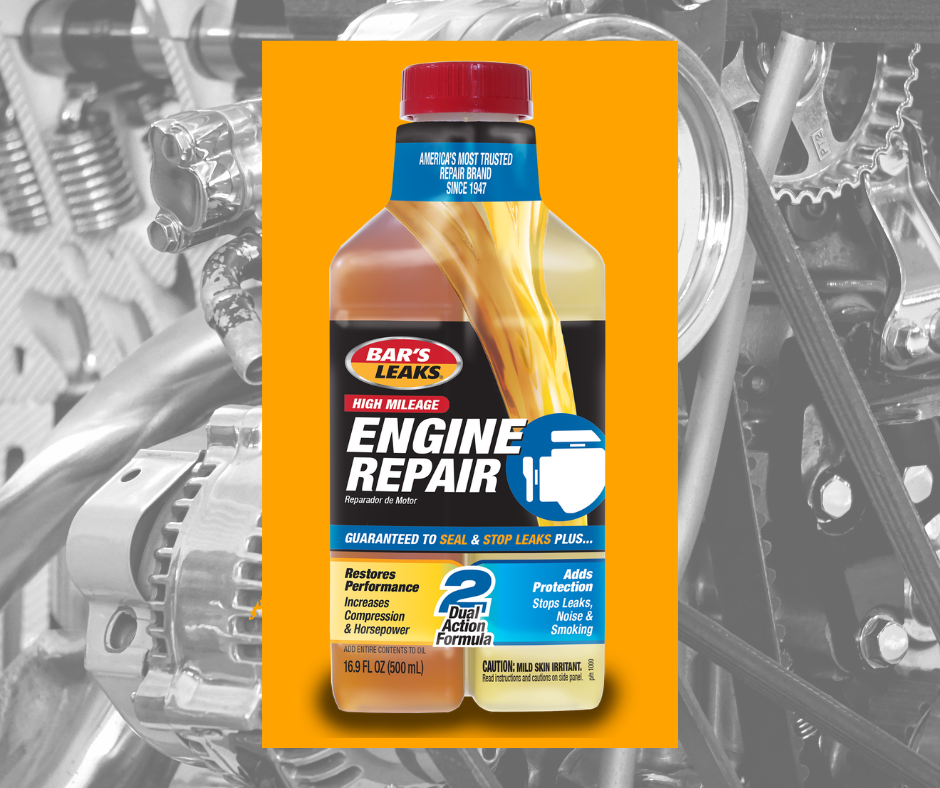
Dealing with an engine oil leak and you need some help talking through it?
If you are dealing with an engine oil leak issue and don’t know where to start, give us a call at 800-345-6572 (M-F, 8am – 5pm ET), or contact us on the web. Don’t let an engine oil leak strand you this winter. Our Michigan-based customer support is more than happy to help.
